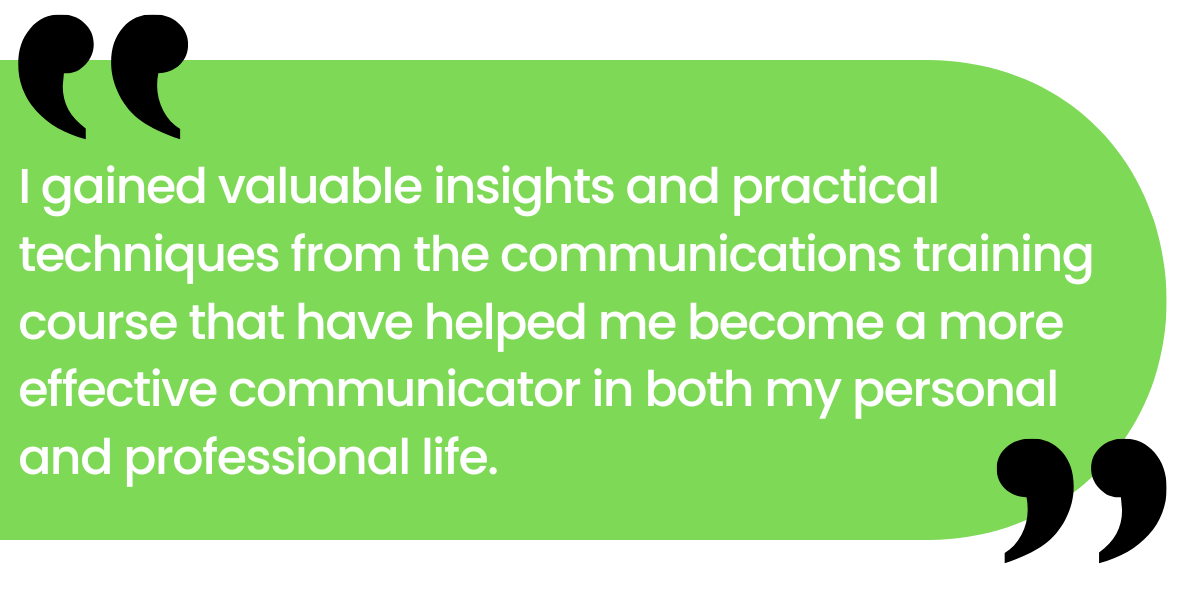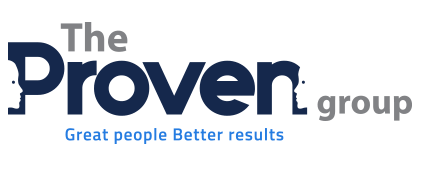About the Communication Training Courses
The Faculty of Communication offers comprehensive training to professionals at any career stage, equipping learners with the tools to communicate clearly, concisely, and convincingly.
The suite of courses is expertly designed to master all forms of workplace communication, from business reports to presentations, emails, and meetings. By inspiring change and driving action, professionals can ensure successful workplace actions.


Explore our full range of Communication Training Courses

- What is effective communication?
- The difference between effectiveness and efficiency
- Methods of Communication
- What part motivation plays in effective communication
- Communicating Effectively at Work – the formula
- Understand the different parts of the brain and how they affect communication

- Understanding the role emotions play in decision making
- Goleman’s 4 Emotional Intelligence Domains
- Emotional Intelligence Competencies
- How to Deescalate Heightened Emotions

- Analyse behaviour within the workplace
- Identify the behavioural requirements of a particular job and match individual styles against job requirements
- Become accredited to apply DISC behavioural profiling as a Human Resources development and training tool

- Businesses gain confident employees who professionally interact with challenging customers and have the skills and knowledge to self-manage stress
- Employees gain skills that improve job satisfaction and are highly desired in all industries
- Customers interact with professional employees who communicate with empathy and seek to minimise stress

- A reputation for employing employees who provide excellent in person & telephone service
- Employees appreciate the opportunity to refresh their skills and connect with an experienced and engaging Service Excellence Coach
- Less complaints and increased compliments from delighted customers who willingly refer the business to associates, friends and family

- Understanding the fundamentals of the 4 DISC behavioural styles
- Analysis Individual DISC reports and teams relation to the DISC model
- Understanding the preferred communication style of each of the DISC styles
- Using the 7 styles of communication
- Key elements of communication
- The COIN method for difficult conversations
- The Shannon and Weaver communication model and where communication goes wrong
- How and why, we filter information

- Where might difficult conversations arise in the workplace?
- What are the barriers to difficult conversations?
- Why might having difficult conversations be an essential part of what you do?
- What are some strategies to help promote a successful interaction?

- Why is feedback so important in the workplace?
- How to use effective feedback language
- Exploring the OPE and STARR-A models for giving effective feedback
- What do to when feedback ‘fails’

- What can we negotiate for?
- The when and how of negotiation styles
- Competition and Collaboration
- Understanding “Mutual Gain”
- Discover the Principles of BATNA and ZOPA and where they fit in
- Chris Voss’ FBI Negotiation Strategies
- What to do when we hit roadblocks
- Ethics and Negotiation
- Negotiation Over Various Mediums

- Create an incredible experience for your audience
- Structure and Delivery
- Driving home your key messages
- Venue Pre-Check and Set Up
- Overcome nerves
- Developing killer confidence
- Nailing the correct language
- Timing, Timing, Timing!
- Handling the Challenging Humans in the room

- Why Body Language Is So Important
- Understanding Non-verbal Behaviour
- Power Poses
- Identify Cultural Differences in Body Language
- Speed Reading Principles from former FBI Agent Joe Navarro
- Understanding Facial Expressions & Eye Contact
- The Power of Power Poses

- When Communication Fails – The Great Big Disconnect
- Active Listening
- Speaking Effectively
- Effective Questioning Techniques
- How to read and utilise body language
- Written Communication Across All Mediums
- Seeking to Understand before being Understood

- Tools and Skills for Active Listening
- The Power of Curiosity
- Understanding the way others communicate
- Emotion and Active Listening
- Active Listening and Collaboration

- The Minute Taker’s Role
- What Do I Take Notes On?
- Active Listening
- Decision Making
- Being Organised and Prepared
- Overcoming Common Challenges

- Provide World Class Customer Service over the Phone
- ‘YES’ is the answer – How to say yes as often as possible
- Extreme Ownership – it may not be your fault, but it is your problem
- Gaining Trust
- Effective Questioning Techniques
- Being Clear and Concise
- Managing Challenging People and Situations
- Triaging a Busy Reception Area








